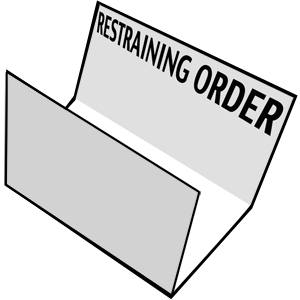Last Updated on July 27, 2023
Welcome to our article on how to beat an intervention order. If you find yourself facing an intervention order, it is crucial to understand the ins and outs of this legal process. In this article, we will guide you through the necessary steps to effectively navigate this challenging situation. Seeking legal advice should be your first priority, as it will provide you with the necessary guidance and support. Additionally, gathering evidence to support your case is essential. Complying with the order is crucial to avoid any further legal complications. Attending court hearings and presenting your case professionally are vital steps in achieving a favorable outcome. Lastly, following court orders and seeking support and counseling will help you move forward. Let’s dive into the details and empower you to overcome this obstacle.
Understanding Intervention Orders
Understanding intervention orders is crucial if you find yourself in a situation where you are subject to one. Here are some key points to consider:
- An intervention order is a legal document that aims to protect a person from harm or harassment.
- It can be obtained by a person who feels threatened or unsafe due to the actions of another individual.
- The order can restrict the behavior of the person against whom it is issued, such as prohibiting contact or requiring them to stay away from certain locations.
- Intervention orders can be temporary or permanent, depending on the circumstances.
- It is important to understand the terms and conditions of the order to ensure compliance and avoid legal consequences.
By familiarizing yourself with intervention orders, you can better navigate the legal process and protect your rights.
Seek Legal Advice
When facing an intervention order, it is crucial to seek legal advice as soon as possible. This is because intervention orders can have serious consequences and it is important to understand your rights and obligations. A legal professional can provide you with the necessary guidance and support throughout the process.
By consulting with a lawyer, you can gain a better understanding of the intervention order and its implications. They can explain the legal terminology and help you navigate through the complexities of the legal system. Additionally, a lawyer can assess the strength of your case and provide you with advice on the best course of action.
Remember, seeking legal advice is not a sign of guilt or weakness. It is a proactive step towards protecting your rights and ensuring a fair outcome. So, don’t hesitate to reach out to a legal professional who specializes in intervention order cases.
Gather Evidence
Gathering evidence is a crucial step in beating an intervention order. It is important to collect any evidence that can support your case and disprove the allegations made against you. This evidence can include text messages, emails, photographs, or any other form of communication that can demonstrate your innocence.
When gathering evidence, it is important to be thorough and organized. Keep a record of all relevant documents and make sure they are properly labeled and stored. It is also advisable to make copies of all evidence, as it may be necessary to provide them to the court or your legal representative.
In addition to collecting physical evidence, it is also important to gather witness statements. If there were any witnesses to the alleged incidents, ask them to provide a written statement detailing what they saw or heard. These statements can be valuable in supporting your version of events.
Remember, the more evidence you have, the stronger your case will be. It is important to present a compelling argument backed by solid evidence to increase your chances of success in court.
5. Comply with the Order
Once an intervention order has been issued against you, it is crucial to comply with its conditions. Failure to do so can result in serious consequences, including criminal charges and imprisonment. Here are some important points to keep in mind:
- Read the order carefully: Take the time to thoroughly understand the conditions outlined in the intervention order. If you have any questions or concerns, seek legal advice.
- Do not contact the protected person: The intervention order typically prohibits any form of contact with the protected person. This includes in-person contact, phone calls, text messages, emails, and social media interactions.
- Stay away from specified locations: The order may also specify certain locations that you must stay away from, such as the protected person’s home, workplace, or school.
- Do not breach the order: It is essential to strictly adhere to the conditions of the intervention order. Any breach, no matter how minor, can have serious consequences.
- Keep records: Maintain a record of your compliance with the order. This can include screenshots of blocked social media accounts, phone records, or any other evidence that demonstrates your commitment to complying with the order.
By complying with the intervention order, you demonstrate respect for the legal process and increase your chances of a favorable outcome in court.
6. Attend Court Hearings
Attending court hearings is a crucial step in dealing with an intervention order. It is important to be prepared and present yourself in a professional manner. Here are some key points to consider:
- Make sure you know the date, time, and location of the hearing. Arrive early to allow yourself enough time to find the courtroom and settle in.
- Dress appropriately for court. This means wearing clean and neat clothing that shows respect for the court.
- Be respectful and courteous to everyone in the courtroom, including the judge, lawyers, and other parties involved.
- Listen carefully to the proceedings and take notes if necessary. This will help you remember important details and arguments made by the other party.
- If you have legal representation, follow their advice and guidance throughout the hearing.
- Present any evidence or witnesses that support your case. This may include documents, photographs, or testimonies from individuals who can provide relevant information.
- Be prepared to answer questions from the judge or the other party’s lawyer. Stay calm and composed, and provide honest and concise answers.
- Respect the decision of the court, even if it is not in your favor. If the order is extended or modified, make sure you understand the new terms and conditions.
Attending court hearings can be intimidating, but with proper preparation and a respectful attitude, you can present your case effectively and increase your chances of a favorable outcome.
Present Your Case
When facing an intervention order, it is crucial to present your case effectively in court. This is your opportunity to provide evidence and arguments that support your position and challenge the validity of the order. To do this, it is essential to be well-prepared and organized.
Firstly, gather all the relevant evidence that can help prove your innocence or disprove the allegations made against you. This may include witness statements, photographs, text messages, or any other documentation that supports your side of the story.
Secondly, consult with a legal professional who specializes in intervention order cases. They can guide you on the best way to present your case and help you understand the legal aspects involved.
Thirdly, develop a clear and concise argument that outlines your position and addresses any concerns raised by the court or the opposing party. It is important to remain calm and composed during the proceedings, presenting your case in a respectful and persuasive manner.
By presenting your case effectively, you increase your chances of having the intervention order dismissed or modified to better suit your circumstances. Remember, the court is there to listen to both sides and make a fair decision based on the evidence presented.
Follow Court Orders
Once the court has made a decision regarding your intervention order, it is crucial that you adhere to the court orders without fail. This means following any restrictions or conditions that have been imposed upon you. Failure to comply with these orders can result in serious consequences, including criminal charges and imprisonment.
It is important to fully understand the court orders and seek clarification if needed. If you have any concerns or difficulties in complying with the orders, it is advisable to seek legal advice as soon as possible. Your lawyer can guide you on how to navigate through any challenges that may arise.
Remember that ignorance of the court orders is not an excuse. It is your responsibility to familiarize yourself with the terms and conditions set by the court and ensure strict compliance. By doing so, you demonstrate your commitment to respecting the legal process and the rights of others involved.
By following court orders, you not only avoid further legal complications but also show the court that you are willing to cooperate and take the necessary steps to address the concerns raised in the intervention order. This can have a positive impact on your case and potentially lead to a more favorable outcome.
Seek Support and Counseling
Seeking support and counseling is an essential step in dealing with the challenges of an intervention order. It is important to remember that you are not alone in this situation and there are professionals who can help you navigate through it.
Support
Reach out to your friends and family for emotional support. They can provide a listening ear and offer guidance during this difficult time. It is crucial to surround yourself with a strong support system that can help you stay positive and focused.
Counseling
Consider seeking professional counseling to help you cope with the emotional impact of the intervention order. A counselor can provide a safe space for you to express your feelings and help you develop strategies to manage stress and anxiety. They can also assist you in building healthy coping mechanisms and improving your overall well-being.
Remember, seeking support and counseling is not a sign of weakness, but rather a proactive step towards healing and moving forward. By taking care of your mental and emotional health, you are better equipped to face the challenges that lie ahead.
Wrapping Up: Taking Control of Your Situation
As we come to the end of this comprehensive guide on how to beat an intervention order, it is important to reflect on the steps we have discussed. By now, you should have a clear understanding of what intervention orders are and how they can impact your life. Seeking legal advice is crucial in navigating the complexities of the legal system, and gathering evidence to support your case is essential.
Remember, compliance with the order is not only a legal requirement but also a way to demonstrate your commitment to resolving the situation. Attending court hearings and presenting your case effectively can greatly influence the outcome. It is equally important to follow any court orders that may be imposed.
Lastly, seeking support and counseling can provide you with the emotional strength and guidance needed during this challenging time. By taking control of your situation and following the steps outlined in this guide, you can increase your chances of successfully beating an intervention order.
Learn how to effectively navigate and overcome an intervention order with legal advice, evidence gathering, and court hearings. Seek support and counseling for a successful outcome.
About The Author

Orochi Konya is a student of the web. He has been dabbling in it since he was young, and has become an expert in his own right. He loves all things digital, from making websites to programming to social media. In his spare time, Orochi enjoys indulging in his other passion: music. He loves listening to all kinds of music and often spends hours creating playlists on Spotify. He also enjoys drawing manga and watching anime in his free time. Orochi is a friendly pop-culture guru who is always happy to chat about the latest trends in both Japan and the U.S.

